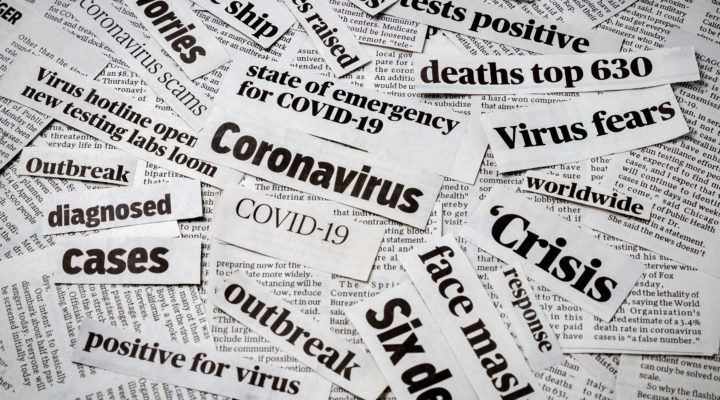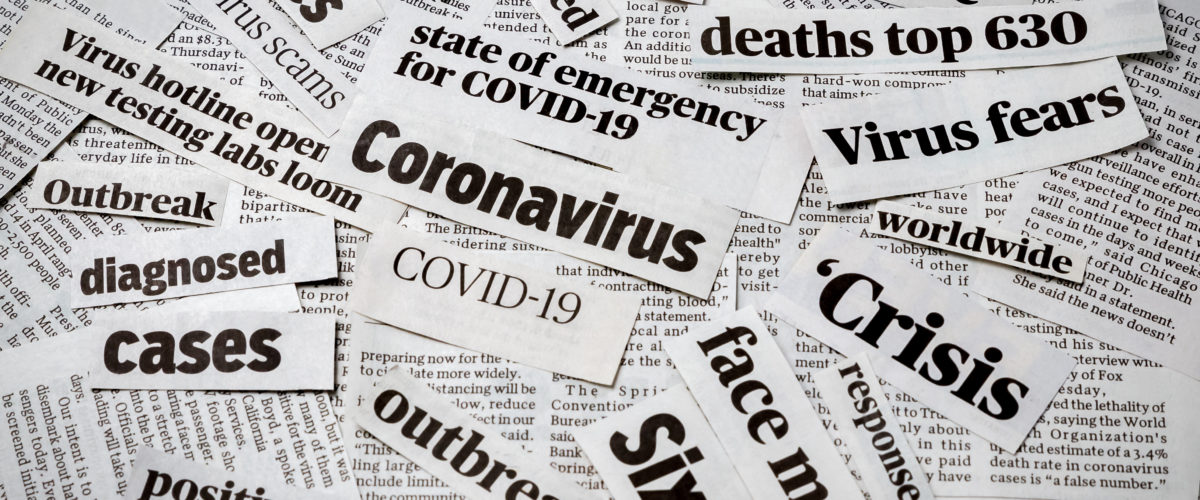For the last seven years, I’ve battled chronic pain and illness. A traumatic back injury in 2013 was only the beginning of what these years have held for me.

Amber Cantorna
Intense treatments and therapies with very slow results kept me hopeful that someday my mobility would return and with it, my life. But as my injury healed, the extreme fatigue did not. In fact, it was only the start of a whole host of symptoms that would lead me to a very limited and modified life.
The journey of getting to where I am today hasn’t been an easy one. It’s certainly isn’t one I ever would have chosen, nor would I wish it on anybody. It’s required a lot of perseverance, determination, faith and perpetual hope. It’s taken learning a lot of hard lessons about self-care disappointments and pain management along the way.
But much of what I have learned is what has gotten me this far and it also has set me up for enduring this pandemic that has so drastically impacted each of our lives this year. These lessons have been helpful for me and may be helpful for you as we continue to navigate this unprecedented time together.
First, be gentle with yourself and allow space for grief. All of us have experienced disappointments in various forms over the last five months. Some of us have cancelled dream vacations, some of us haven’t been able to see family, some of us have postponed weddings or delayed funerals, some of us have lost jobs, and some of us have lost loved ones.
All these things are painful, complex and require room for varying levels of grief and healing. Be gentle with yourself. Allow space and grant permission for your heart to feel this pain, to grieve this loss and to process all that’s happening. And then remember to be kind to others, knowing they are grieving too.
Second, slow down and take naps often. Adjusting to a new speed of life can be hard, especially for extroverts who thrive on social interaction. With the world operating at a slower pace right now, it’s a good time to take inventory of our lives and take pause.
Slowing down is something many of us likely have been needing to do for a long time. Take advantage of this season of life and allow your mind, body and heart to rest and function at a slower pace. Read books. Make time for simple pleasures. Practice deep breathing and prayer or meditation. And take naps. Naps can do wonders for your energy, stress and perspective on life.
“Like chronic illness, this pandemic isn’t going away anytime soon.”
Third, lower your expectations. You’re in this for the long haul. Like chronic illness, this pandemic isn’t going away anytime soon. All of us have faced work, school and family challenges. All of us are taking on tasks we wouldn’t otherwise be doing (home schooling kids, fixing maintenance issues that arise at home, grooming pets).
Pace yourself. Set goals you can realistically obtain without adding too much stress or anxiety to your life, and trust that the rest will somehow work itself out.
Fourth, be flexible. Change is the only constant. Life will continue to change (sometimes at a rapid rate) throughout this process. Be flexible, remember to be realistic with your expectations, and accept that situations can and will change often.
This can be hard for those of us (like me) who like to control things or plan ahead. But accepting the reality of how life is right now, rather than fighting against it, will make for a smoother transition through each phase of this pandemic process.
Fifth, get acquainted with uncertainty and lean into hope. One of the hardest parts of dealing with chronic illness is fear of the unknown. Life is uncertain, plans are uncertain, symptoms are uncertain, and not knowing how you will feel from day-to-day makes it hard to commit to anything.
“Leaning into hope a little each day will help keep our spirits afloat.”
Going so many years without a diagnosis also was frightening, especially as my symptoms continued to worsen. For me, it’s been a lesson in letting go of control, getting acquainted with uncertainty and leaning in to hope. These tools are easily applied to our current global health crisis. Leaning into hope a little each day will help keep our spirits afloat.
Sixth, be intentional in community building. We need each other now more than ever. Although we may not be able to physically share in each other’s company, the companionship of friends and family remains vitally important to our overall health and well-being.
Check in on each other often, send cards in the mail, use apps like Marco Polo to stay in touch, or schedule virtual dinners or game nights with your friends via Zoom. These things won’t replace a good hug from a friend, but they will help you stay connected and feel closer to those you love.
Isolating ourselves will only make this process longer and harder. We must be intentional in creating spaces that foster and build community engagement.
None of these lessons is easy. If they were, having such a dramatic shift in our lives and daily routines wouldn’t feel so jolting. But leaning into these things, and being open to learning and adapting, will help us get through the weeks and months to come.
Amber Cantorna grew up in the deeply conservative evangelical culture of Focus on the Family and now lives in the Denver area with her wife, Clara. She is the author of Refocusing My Family and Unashamed: A Coming Out Guide for LGBTQ Christians. She is a musician, writer and speaker.


